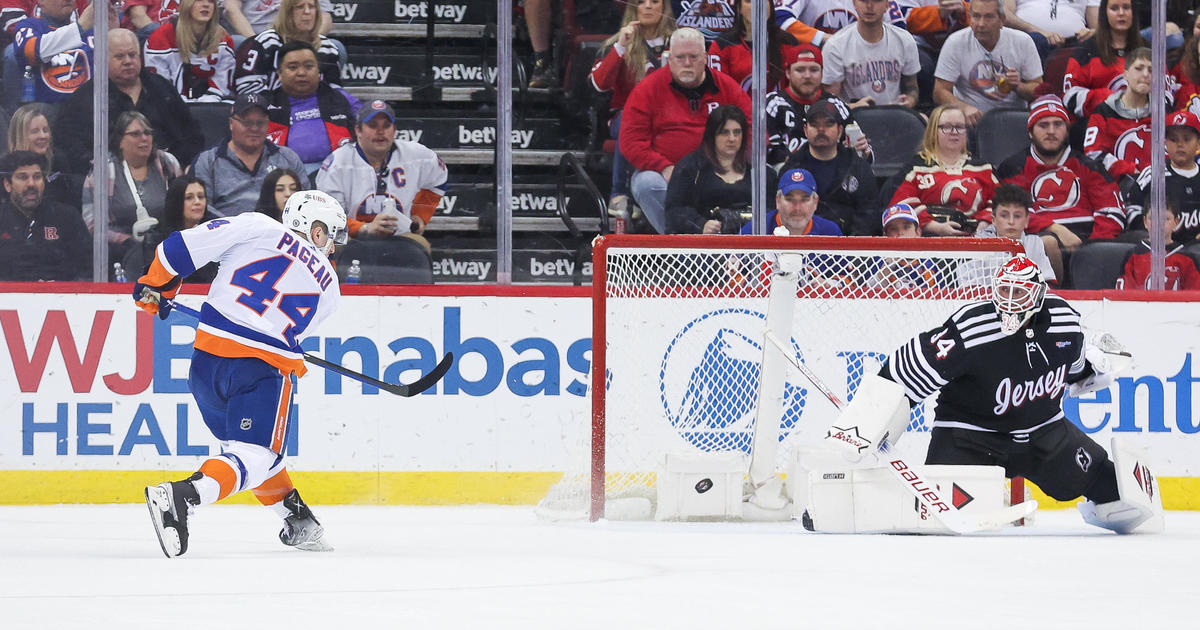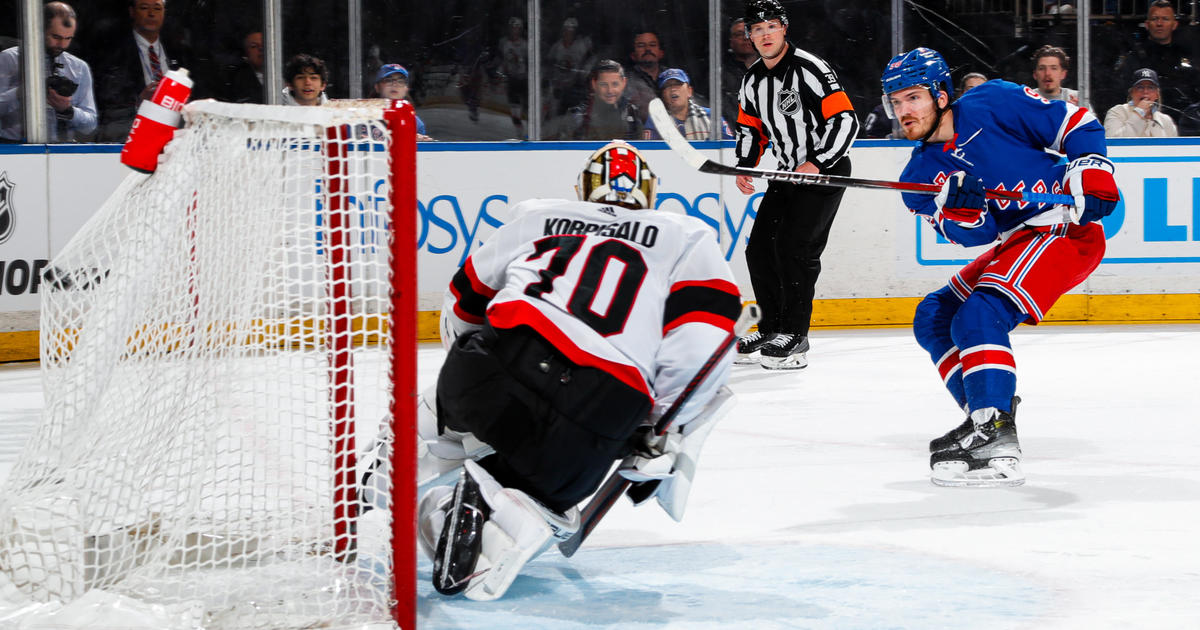Keidel: Mike Tyson - From Fame to Shame to Hall of Fame
By Jason Keidel
» More Columns
Canastota is a small town in New York, nestled between Syracuse and Utica. You would not know of this town if you didn't follow boxing. And perhaps you wouldn't know of boxing if not for Mike Tyson.
The two converged on Saturday, as Tyson, former heavyweight boxer, partier, addict, and inmate, took his place among his peers in the International Boxing Hall of Fame. Tyson finished his tumultuous career with a 50-6 record, including 44 knockouts. The numbers with the fighter, and the man, are incidental, nowhere near telling his tale. Had Tyson not taken his singular gift for granted, his name and face would bulge from America's Mt. Rushmore as one of the five greatest fighters ever, and maybe one of the ten greatest athletes.
LISTEN: Jason Keidel joins Lori Rubinson to talk boxing, Yankees and NBA Finals
His visage was splashed across the key demo for a decade – on video games, commercials, talk shows, and, most importantly, fight night. No matter your personal feelings about him, Tyson was must-see TV. It seemed the only one who could beat Tyson was, of course, Tyson. And he obliged. Often.
Tyson's penchant for self-mutilation cloaks what should have been a boxing career rivaling those of Muhammad Ali, Joe Louis, Rocky Marciano, and anyone you can think of. Tyson was that talented. Tyson was that tormented. And before the hair grew in on his chest, it was over. His career arc seemed limitless, commensurate with his interest in it and his ability to stay between the ropes and not behind bars.
The quintessential carnivore who pledged to eat Lennox Lewis's children (Lewis was childless at the time) and bit off Evander Holyfield's ear is now a soft-spoken vegan who talks in spiritual platitudes about humility and family, with none of the bitterness you'd expect from a man who literally had the world in his hands only to see it slip through his scarred knuckles. Tyson was never comfortable in his own skin, much less his stardom, as though he kept his gloves on when he needed his fingers and took his gloves off when he needed to fight.
In the 1980s, Tyson's stated goal was to drive his opponent's nose back into his brain. And thus was his lack of pretense for the first half of his career, a Spartan existence of training and teaching and learning. He wore no robe or socks into the ring. There were no wasted movements in Mike Tyson during the halcyon days, which were so brilliant but brief, a star or comet – pick your astrological metaphor – whose prime and prerogative as the best fighter on Earth ended around his 24th birthday.
The money still funneled in, as did the toys, the girls, and the glory. But in a strict, pugilistic sense, Mike Tyson was a failure. He was so good during his blip on the boxing radar that he landed a spot in the Hall of Fame, and rightly so. Yet Tyson personified the "what if" debate. Rather than commanding his place among the immortals, we speak more of pain than gain, about his losses more than his wins, with oblique references to Ali, though only to ponder which round "The Greatest" would defeat "The Latest."
Such are the contrasts in Tyson, a corporeal contradiction who was gentle and genteel one moment and barbaric the next. And no one knew when or why Jekyll would become Hyde, just that it was time to hide.
Perhaps no athlete other than Michael Jordan reached Tyson's stratospheric success, though Tyson alone plunged into a personal Hades, a sharp slide greased by a public and bitter divorce from Robin Givens, savage mood swings, depression, drug addiction, a weakness for women (even those who didn't want him), and a sense that he would die long before his boxing skills did, doing all he could to hasten the process.
Leave it to Tyson, always baffling even at his predictable best and worst, to become decent once he was down, when he hit the symbolic canvas for good – a broke and broken former fighter, a junkie with a bulging rap sheet, like so many of his predecessors who left the ring but were not done throwing punches.
And like the phalanx of former champions who retain their titanic appetites without the cash to pay for them, Tyson, because of his star power and firepower, and the resonance of his fury and the corridor of wreckage he left in his path, partied on spec, on potential and promise, on debt he never repaid. Depending on which estimate you believe, Tyson blew between $300 and $500 million. That's one hell of a party, and nearly all of it was recorded.
Tyson represents the adolescence of so many at the vortex of power today – hence his appearances in the two "Hangover" films, his own show on Animal Planet (Taking on Tyson), the lauded documentary by James Toback, appropriately billed, "Tyson." From his high monotone to his lisp to his tattoos to his semantic slips, he is called a caricature as much as a character. But simply branding him a freak is an oversimplification for a complex person.
Make no mistake, Tyson was (and is) an intelligent man and a boxing historian who spent countless hours in dark rooms with Cus D'Amato, squatting under the cone of a projector's light, absorbing the fistic sermons of his predecessors (Jack Dempsey, Joe Louis, Rocky Marciano, Sonny Liston, etc.) and Tyson worked tirelessly to become an amalgam of his new heroes. There were no heroes at home, in Brownsville, Brooklyn, flanked by addicted and imprisoned parents and other family members. Boxing was his way out, as it was with so many poor kids over the last century.
But just like his interview with an ESPN reporter on Saturday, when he said he was "gracious to be involved" when he clearly meant "grateful," or after his loss to Lewis he said he'd "fade into bolivian" rather than "oblivion," Tyson always patrolled the periphery, skirted the essence of his subject or himself. He was so close to perfection on so many occasions, yet we (and perhaps he) knew that he would never make it.
We don't know what it's like to be in his head, and that's a good thing. His clashing impulses, from telling a female reporter that "I don't speak to females unless I'm fornicating with them" to being convicted of a rape many experts feel he didn't commit, showed that there were more sides to Tyson's personality than to an octagon.
But a prison stint for something, contrived or convinced, was inevitable. Tyson never thought he'd live to 40, so why save money, energy, and testosterone for a day that won't come?
At his brooding, vulgar nadir – perhaps symbolized by his tirade at the preflight press conference with Lennox Lewis, when he unleashed an invective at an arbitrary person in the darkness beyond the dais, saying he'd make the man his, er, "woman," pointing to and grabbing his groin incessantly, only to be topped by biting Lewis's leg during a scrum at the very same event – Tyson was so repulsive that one would understand that you'd never root for him.
But then you'll understand that some of us do root for him. I was one of the haters. And not because of our socioeconomic contrast – Tyson being from Brownsville while I was on the Upper West Side, a long, financial, educational, and parental jab from his wheelhouse – but because there's something beautiful about Michael Gerard Tyson.
From the glory to the gory, Tyson was real, acting upon impulses we only imagined. We can't imagine having his life. Whatever he wanted was literally delivered to his door – women, cash, drugs, Bentleys and Bengal tigers. We'd all like to think we'd never surrender to the aggregate drumbeat of temptations. But we probably would.
I applaud the change from public pervert to pastoral, introspective family man who is quick to cringe at his past. He is more courageous and revered in repose than he ever was as the "Baddest Man on the Planet."
As Iron Mike, he melted before the first men to hit back (Buster Douglas and Holyfield), but Tyson, like all bullies, was spawned by self-loathing. Sure, there are kids from the ghetto who never need to assault old men after a fender bender, or snort sandwich bags filled with cocaine, or humiliate himself in front of millions of dudes for millions of dollars, but suffice it to say he was a sick man before he acquired the tools to nurse his neuroses. And the fact that he cares enough to face his myriad demons and, on occasion, even laugh at them, speaks to a large reserve of fortitude, good fortune, and fate. Unlike his twisted hero and pugilistic precursor, Sonny Liston, Tyson fought back against his destiny, took a torch and rode that mule down the halls of his dark side. Liston died a most ignominious death – a syringe, squirting heroin, stuck in his meaty forearm, either an overdose or a hot shot or a homicide. The world didn't care enough to find out.
Like Mike Tyson, you could argue that Liston never had a chance, raised appallingly poor in an Arkansas shack, one of two dozen kids sired by an abusive father who whipped young Sonny so savagely that the welts from the belts swelled from his broad back as though he were branded as cattle.
But this Tyson, the one we hope is here for the full 15 rounds, has a chance. And it seems he's making something of it. The world is better because Mike Tyson decided to stick around. He's clean and not so mean anymore. Will it last? As always, we'll just have to tune in to find out.
Feel free to email me: Jakster1@mac.com



